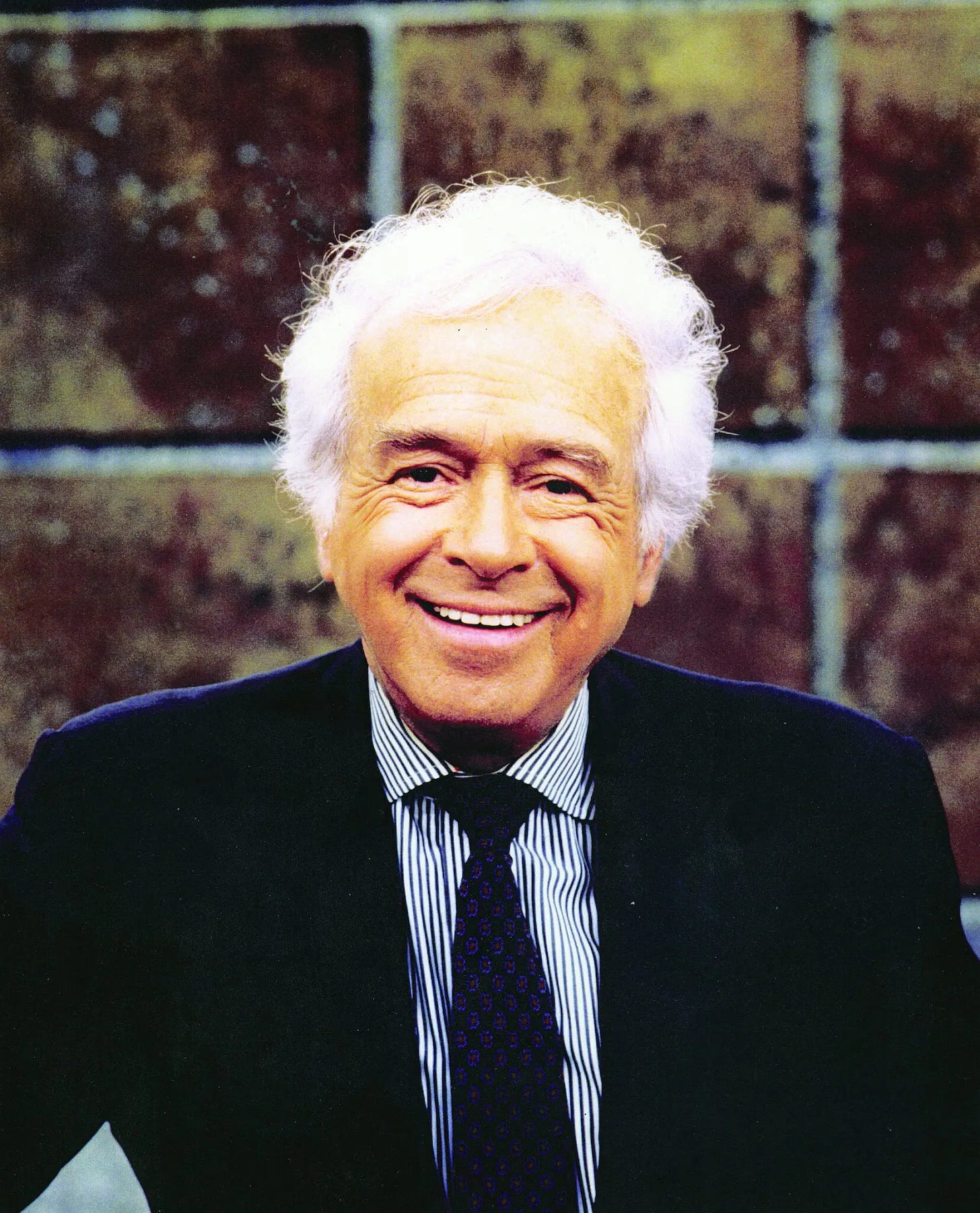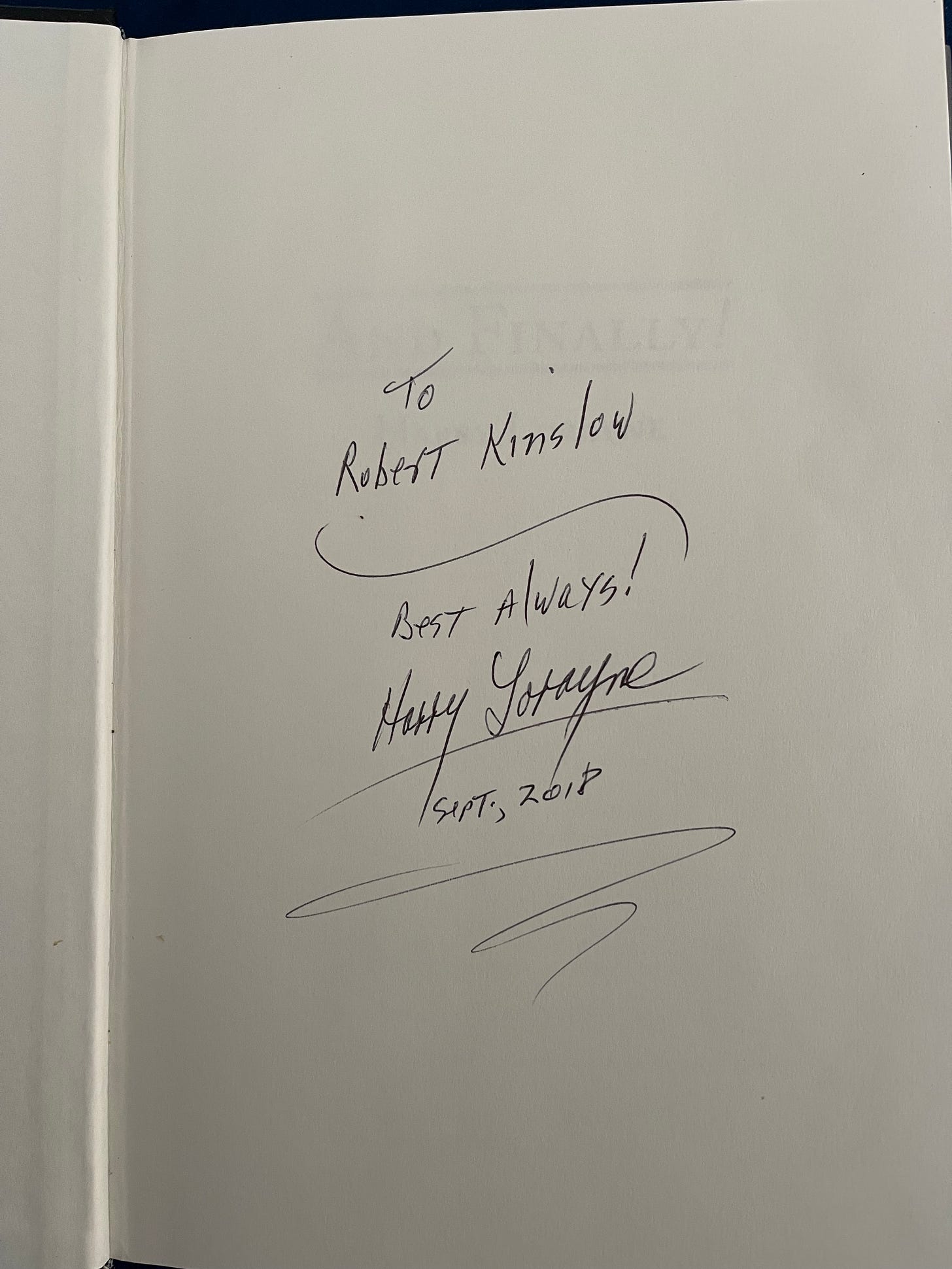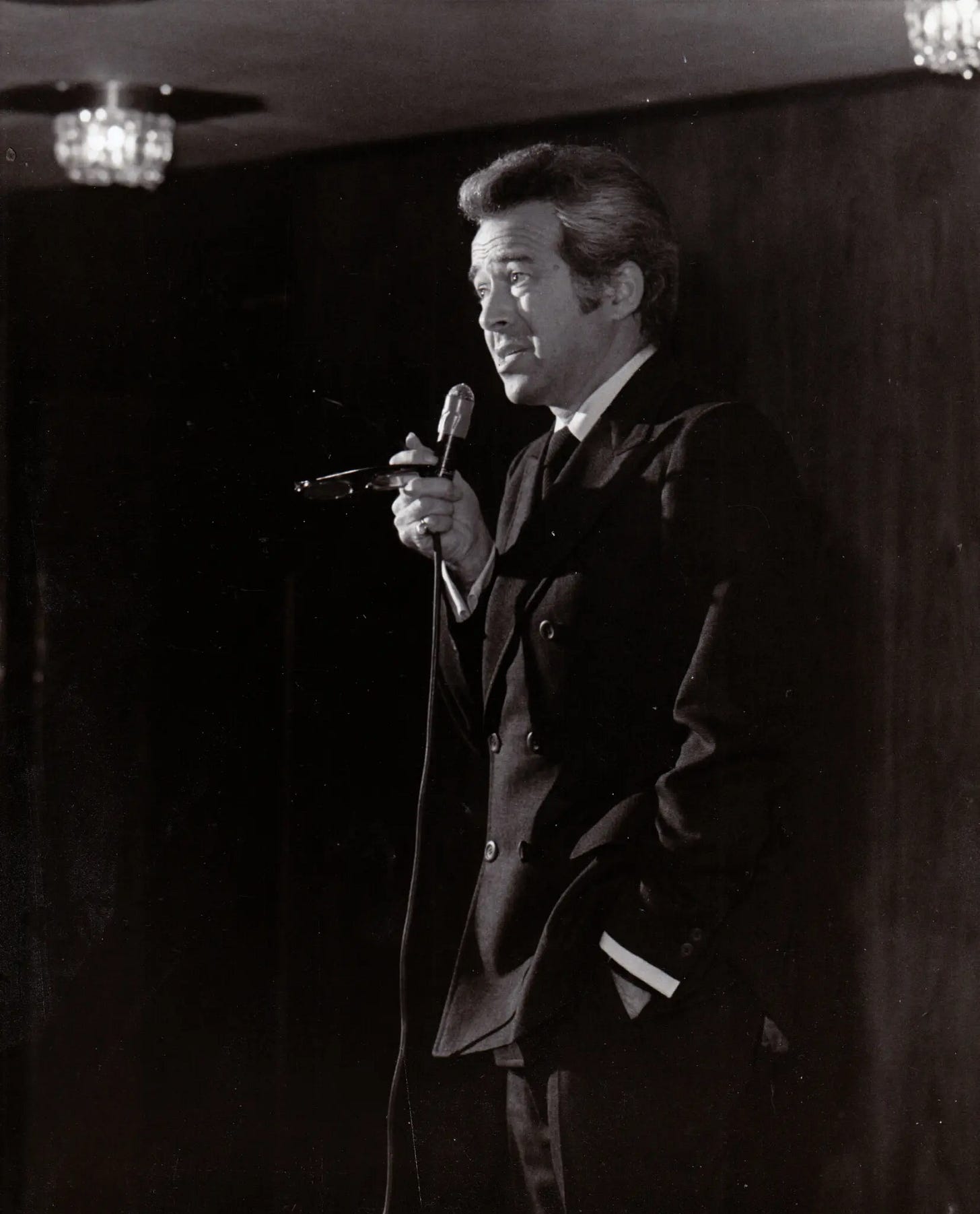Lifted
Resurrection is possible with the help of others.

This post references some adult themes.
Yesterday morning, one of the world’s greatest magicians, and one of the greatest teachers of magicians of all time, breathed his last. Harry Lorayne, born Harry Ratzer on the Lower East Side of Manhattan in 1926, died at the age of 96 in Newburyport, Massachusetts. The world of magicians is in mourning today along with many others (no doubt including one of Harry’s best friends, the legendary director Mel Brooks).
Like another famous Harry—namely, Harry Houdini, whose stage name derived from that of his magical hero, the 19th-century French magician Jean-Eugene Robert-Houdin—Lorayne formed his stage name from the middle name of one of his heroes: his beloved wife, Renée Lorraine Lefkowitz, whom he married in 1948 and who died in 2014.
It is fitting to note Harry Lorayne’s passing on Easter Sunday and during Passover, for his name, his work and what he stood for—amazing people and making them happy—will be resurrected time and time again, and his teaching style— direct, conversational and empowering—was liberating even as he laid down the law. “Do this exactly as I’ve taught you,” Harry would write in his magic books and say on his magic instruction videos in his rapid-fire New York-ese. “Give it a try and see what reactions you get. Then you can do as you like.”
To the general public, Harry was known as a memory expert, someone who appeared on dozens of talk shows and could recall the name of every member of a studio audience, as in this clip on a British TV show in 1980. His obituary in yesterday’s New York Times focused on Harry’s career as a memory expert and barely mentioned his phenomenal career as a magician and prolific magic author, even implying to its readership that Harry’s last book, And Finally!, published in 2018, was a book on memory making skills, when in fact it was his penultimate book devoted to card magic, which was his passion and a genre to which Harry contributed thousands of fantastic tricks.
I know I will cherish my autographed copy of that book, one of more than two dozen Harry Lorayne books in my library, just as I will the few email exchanges I had with Harry over this or that book purchase.
In his emails to me, Harry was warm and modest, sometimes remarking (as these were his later years), “Growing old sucks!” By his nineties his skillful hands had grown arthritic. Rather than lament, however, Harry went and revised and rewrote many of his card magic effects from decades earlier to minimize any sleight of hand requirements, becoming in his twilight career a sort of Zen master of card magic in his bid to simplify his methods and focus on the impact a particular piece would have on our audiences.
Harry called me once out of the blue. I had mailed in a postcard ordering one of his books and he called me to clarify the spelling of my name and my shipping address. (My handwriting was and is atrocious.) I remember thinking as we were speaking that here was someone who had been on The Tonight Show two dozen times and many other TV shows, one of the biggest names in magic and also someone who was viewed in the magic community as having a big ego, and here he was doing his own customer service, and humbly to boot.
Wise guys: A recollection in Harry’s own words
I’m doing some card magic for friends, in the street. Standing quietly watching is an older guy wearing a black suit, well fitted except for a slight bulge at the left armpit, with thin white stripes, black shirt, white tie, shiny black shoes, and a white hat. His name is Duke. Many guys who look and dress like that on the Lower East Side are called Duke!
When I finish, he says, “Listen, kid, come with me. Do some of that stuff for my friends.” I’m about fourteen, and small; I don’t argue with older guys named Duke! He takes me to a car, and we drive uptown. I’m scared, but proud. I figure he liked my card tricks. At least, I hope that’s why he’s “taking me for a ride.”
He stops in front of an old building—a hotel—and takes me into the lobby. There’s a bunch of guys sitting around; all of them look like Duke!
“Hey, fellas, c’mere; watch this kid. Knock your eyes out.”
They gather around—about nineteen guys. It’s my largest audience ever. My voice shakes, and so do my hands.
“Lemme see those cards! Do that with this deck, kid.”
“Okay. Yessir.”
Soon it’s time for the great ending. I begin the effect—the one in which a card is taken, shuffled into the deck, and then appears in my jacket pocket.
I do the big buildup. All the Dukes stand with their “orbs plastered on my mitts,” which is how they say their eyes never leave my hands.
The card is lost, shuffled, into the deck. I show my hands empty. My left hand pulls the left front of my jacket open, and my right hand darts toward the left inside pocket.
At the same instant—z-z-zip—nineteen other right hands slither into nineteen other inside jacket pockets!
Freeze!
From The Magic Book, by Harry Lorayne, pp. 87-88. ©1977 by Harry Lorayne, Inc. Second edition, L&L Publishing, Tahoma, California.
I urge you to read Harry’s obituary. You will hear a story of surviving child abuse, dyslexia and tough New York streets by discovering books on memory-building at the public library and learning magic through sheer will power. Although I never met Harry in person, I, as I am sure is true for thousands of other magicians, feel I knew Harry. He was so open about not only his passion for magic but his vulnerabilities, including his vanity (he wasn’t averse to bragging and always offered to autograph his books) and his supposed lack of technical sleight-of-hand skills, although he was such a great card magician that he didn’t need great sleight of hand.
I like to think Harry would say that in addition to his own scrappiness, at least two things lifted him out of a difficult childhood: developing a super power memory (in his words) and his lifelong love affair with magic. And loved ones: Harry adored his family and friends. Despite being a supernova in the magic world, he would be the first to say he didn’t do any of it alone. He must have taken great comfort knowing that for generations to come, every time a child amazes their family and friends with a trick they learned from one of his books, he will be in the room looking over their shoulder nodding approvingly.
That Harry Lorayne will be remembered long into the future is proof that there is such a thing as resurrection. However, it is not the person who rises up again of their own accord. It is our memory of the life they led and our desire to see and hear from them again that resurrects. Each one of us is writing our obituary every day whether we like it or not. One day, when our earthly selves are no more, the memory of us may be lifted by others, and we will rise again. Let’s make sure they have good and loving things to lift up and behold. Resurrection need not be limited to one Sunday a year. In fact, it happens every day. How we live now will determine how we show up then. Memory is the heaven of all our days to come.





